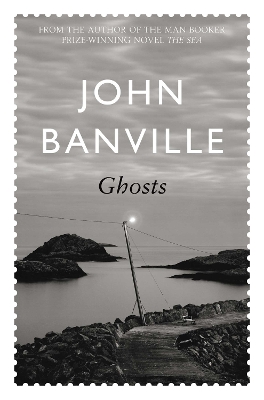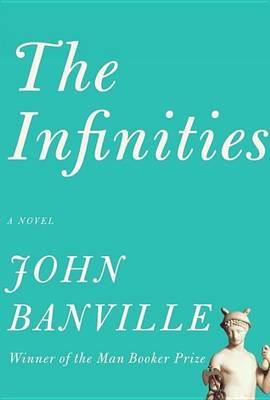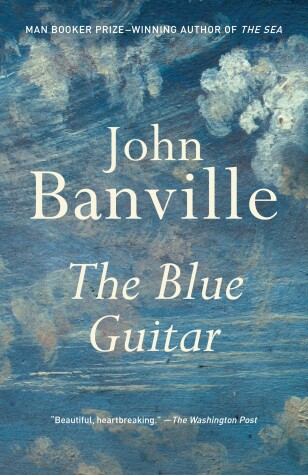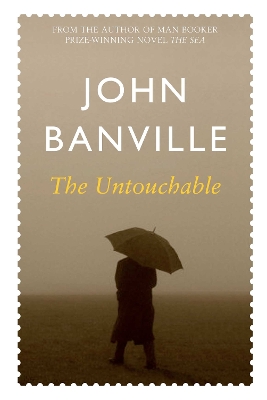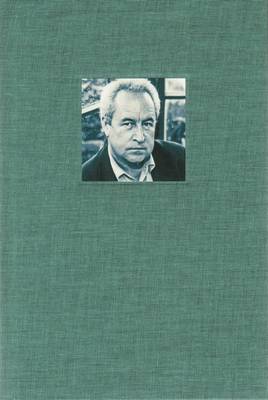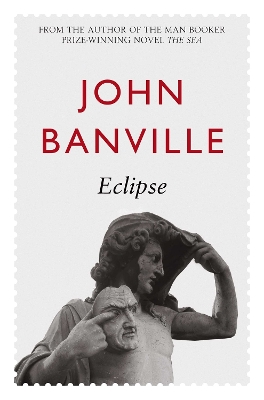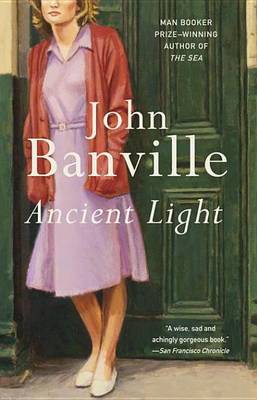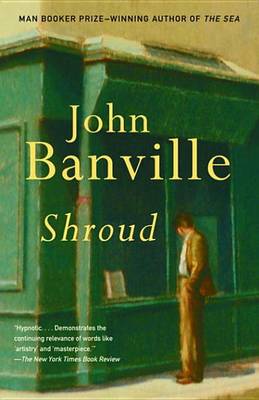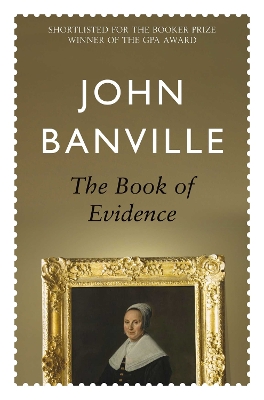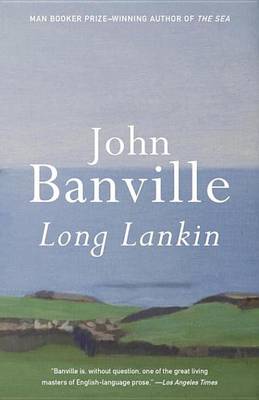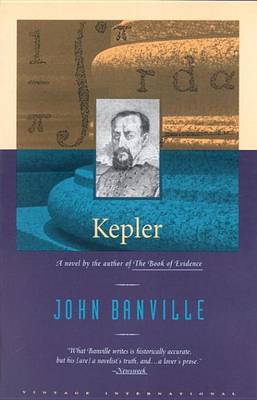Vintage International
14 total works
‘A beautiful, beguiling book full of resonances that continue to sound long after you’ve turned the final page. Its imagining is magical, its execution dazzlingly skilful.’ Sunday Tribune
Ghosts opens with a shipwreck, leaving a party of sightseers temporarily marooned on an island. The stranded castaways make their way towards the big isolated house which is home to the reclusive Professor Silas Kreutznaer and his laconic assistant, Licht, but it is also home to another, unnamed presence . . .
Onto this seemingly haunted island, where a strange singing hangs in the air, John Banville drops an intriguing cast of characters – including a murderer – and weaves a tale where the details are clear but the conclusion polymorphous – shifting appearances, transformations and thwarted assumptions make this world of uneasy calm utterly enthralling.
'This is unequivocally a work of brilliance.' Justin Cartwright, Spectator
Old Adam Godley's time on earth is drawing to an end, and as his wife and children gather at the family home, little do they realize that they are not the only ones who have come to observe the spectacle.
The mischievous Greek gods, too, have come; as tensions fray and desire bubbles over, their spying soon becomes intrusion becomes intervention, until the mortals' lives - right before their eyes - seem to be changing faster than they can cope with.
Overflowing with bawdy humour, John Banville has allowed his twinkling eye to rove through memories of the past and relationships of the present in this moving family drama. The Infinities is both a salacious delight and a penetrating exploration of the terrifying, wonderful, immutable plight of being human.
Oliver Otway Orme—a man equally self-aggrandizing and self-deprecating—is a painter of some renown, and a petty thief who has never been caught ... until now. Unfortunately, the purloined possession in question is the wife of the man who was, perhaps, his best friend. Fearing the consequences, Olly has fled—not only from his mistress, his home, and his wife, but from the very impulse to paint, and from his own demons. He sequesters himself in the house where he was born, and thus, he sets about trying to uncover the answer to how and why things have turned out as they did. A witty and trenchant novel, The Blue Guitar shows Man Booker Prize-winning author John Banville at the peak of his powers.
‘The Untouchable is an engrossing, exquisitely written and almost bewilderingly smart book . . . It’s the fullest book I’ve read in a very long time, utterly accomplished, thoroughly readable, written by a novelist of vast talent’ Richard Ford
Victor Maskell has been betrayed. After the announcement in the Commons and the hasty revelation of his double life of wartime espionage, his disgrace is public, his knighthood revoked, his position as curator of the Queen’s pictures terminated. There are questions to be answered. For whom has he been sacrificed? To what has he sacrificed his life?
The Untouchable is beautifully crafted novel inspired by the famous Cambridge Spies by John Banville, the author of the Booker prize-winning The Sea.
I am therefore I think. So starts John Banville’s 1973 novel Birchwood, a novel that centers around Gabriel Godkin and his return to his dilapidated family estate. After years away, Gabriel returns to a house filled with memories and despair. Delving deep into family secrets—a cold father, a tortured mother, an insane grandmother—Gabriel also recalls his first encounters with love and loss. At once a novel of a family, of isolation, and of a blighted Ireland, Birchwood is a remarkable and complex story about the end of innocence for one boy and his country, told in the brilliantly styled prose of one of our most essential writers.
The first of John Banville's novels concerning father and daughter Alexander and Cass Cleave, Eclipse is a lyrical exploration of memory, family and identity.
Alexander Cleave, actor, has left his career and his family behind and banished himself to his childhood home. He wants to retire from life, but finds this impossible in a house brimming with presences, some ghostly, some undeniably human. Memories, anxiety for the future and more particularly for his beloved but troubled daughter, conspire to distract him from his dreaming retirement.
This humane and beautifully written story tells the tragic tale of a man, intelligent, preposterous and vulnerable, who in attempting to bring the performance to a close finds himself travelling inevitably towards a devastating denouement.
A story of obsessive young love and the power of grief, Ancient Light is the best novel yet from the Booker Prize winner of The Sea
'Billy Gray was my best friend and I fell in love with his mother.'
Alexander Cleave, an actor who thinks his best days are behind him, remembers his first unlikely affair as a teenage boy in a small town in 1950s Ireland: the illicit meetings in a rundown cottage outside town; assignations in the back of his lover's car on sunny mornings and rain-soaked afternoons. And with these early memories comes something sharper and much darker - the more recent recollection of the actor's own daughter's suicide ten years before.
'I should like to be in love again, I should like to fall in love again, just once more.'
Ancient Light is the story of a life rendered brilliantly vivid: the obsession and selfishness of young love and the terrifying shock of grief. It is a dazzling novel, funny, utterly pleasurable and devastatingly moving in the same moment.
'He is a master, and his prose gives continuous, sensual delight' Martin Amis on John Banville
John Banville was born in Wexford, Ireland, in 1945. He is the author of fourteen previous novels including The Sea, which won the 2005 Man Booker Prize. He was recently awarded the Franz Kafka Prize.
Axel Vander, celebrated academic and man of culture, is spending his twilight years on the west coast of America. For decades he has lived with the knowledge of a tragedy of which he was both perpetrator and victim.
Now, out of the blue, a letter arrives hinting at the secrets he has been hiding for fifty years.To find out just how much the writer knows about his past Vander arranges to meet her in Turin. But he is thrown into emotional turmoil by this encounter with Cass Cleave, a deeply troubled young woman desperate to discover a reason to continue living; and the meeting of the two leads inexorably towards disaster.
Written in Banville's faultless, almost painfully beautiful prose, Shroud is a novel which is not afraid to ask deep questions, nor to answer them emphatically.
Inspired by the crimes of Malcolm Macarthur in Ireland, 1982, The Book of Evidence by John Banville is a gripping portrait of a cold, deceptive and utterly unprecedented killer, shortlisted for the Booker Prize.
'Banville writes a dangerous and clear-running prose and has a grim gift of seeing people's souls' – Don DeLillo, author of White Noise and Libra
Freddie Montgomery has committed two crimes. He stole a small Dutch master – an unattributed painting of a middle-aged woman – from a wealthy family friend. And he murdered a chambermaid who caught him in the act, bludgeoning her to death with a hammer.
An eccentric narcissist, he has little to say about the woman he killed. He travels through life without any apparent remorse. He killed her, he says, because he was physically capable of it. It made sense to him.
However, as he narrates his testimony, there is one thing he cannot understand. One thing he would desperately like to know. Why did he want to steal the painting?
'Remarkable' – Ruth Rendell, author of the Inspector Wexford novels
The Book of Evidence is the first in John Banville's acclaimed Frames Trilogy. It is followed by Ghosts and Athena.
